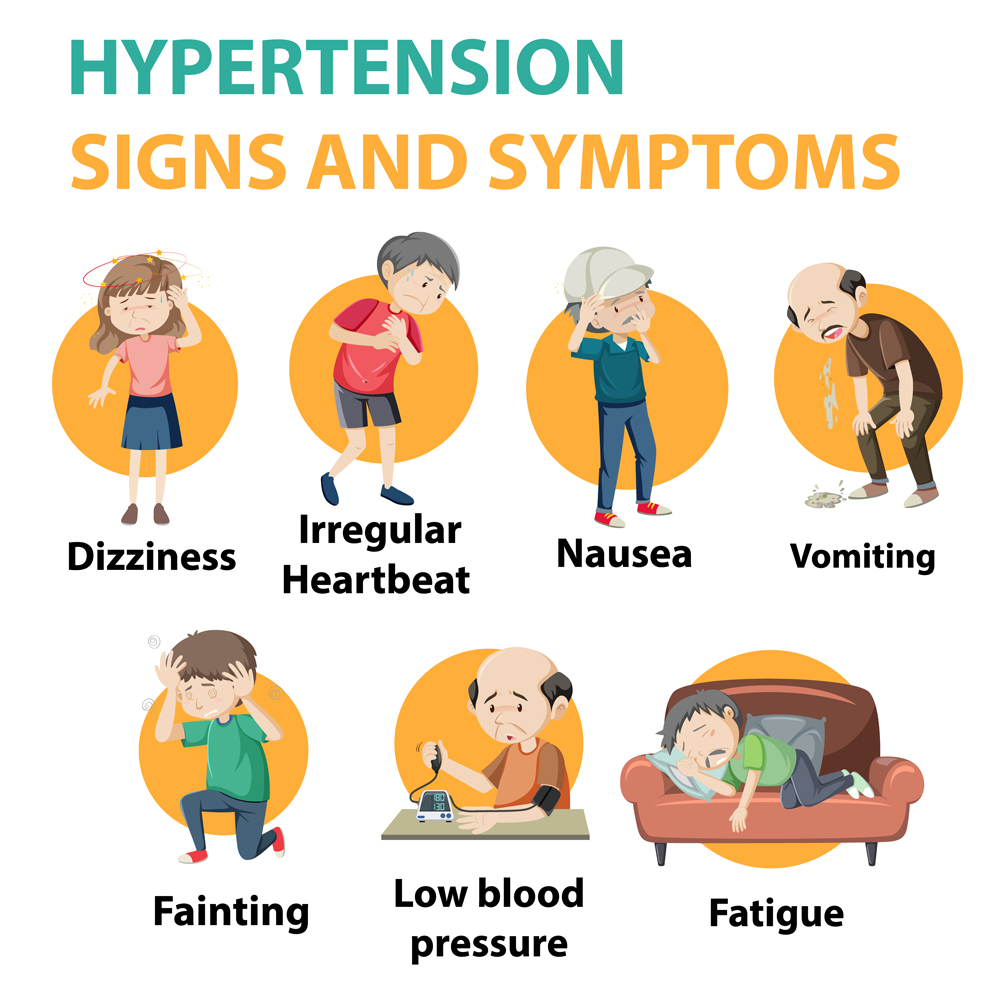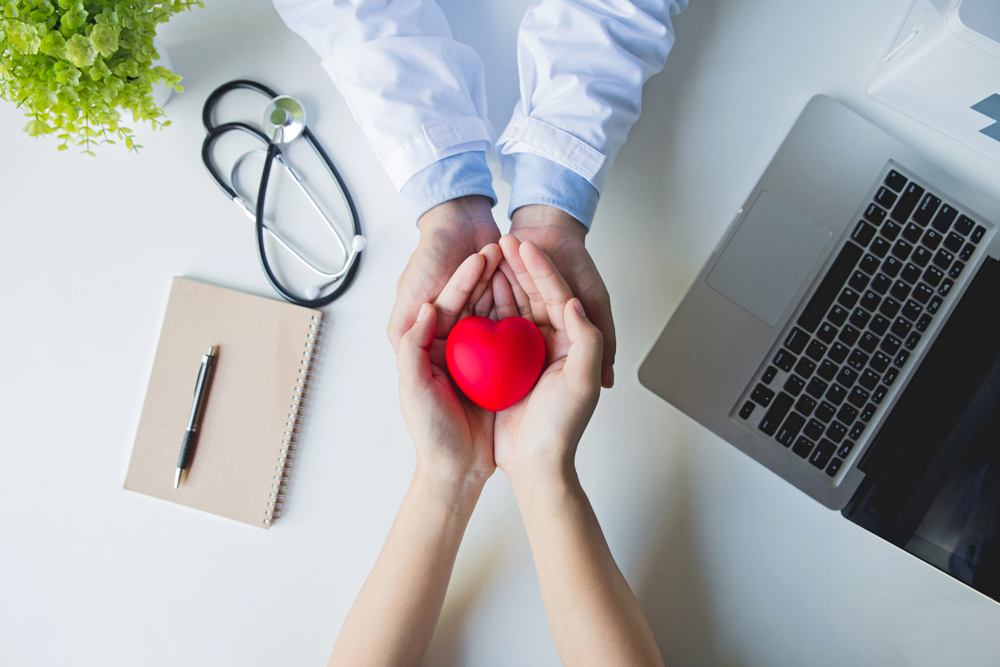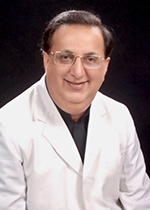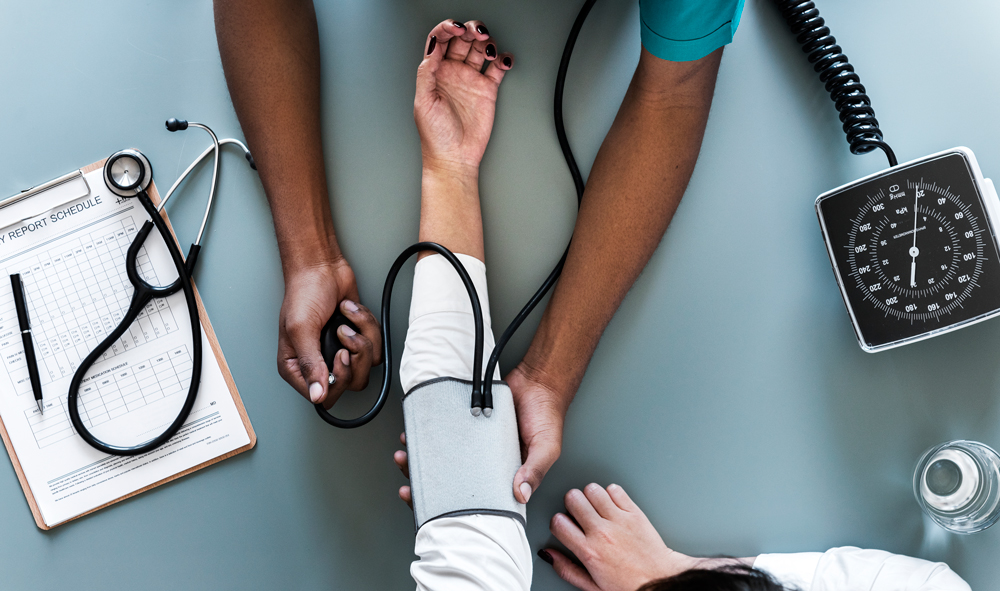Uncontrolled hypertension is the main culprit and hidden terrorist of premature Brain Attack, Heart Attack, Kidney Attack, Eye Attack, Vessel Attack etc.
What is Blood Pressure?
When your heart beats, it pumps blood in all the organs and tissues of the body to give the energy and oxygen they need. As the blood circulates, it pushes against the sides of the blood vessels wall. The strength of this pushing is your blood pressure. If your blood pressure is too high, it puts extra strain on your arteries and your heart and this may lead to heart attacks and brain attack. The blood pressure during heart contraction when the heart pushes blood out of it is known as Systolic (Upper) Blood Pressure and the blood pressure during which the heart relaxes and rests in between the beats is known as Diastolic (Lower) Blood Pressure. For example when the blood pressure “120 over 80” or 120/80 mmHg means systolic blood pressure is 120 mmHg and diastolic blood pressure is 80 mmHg.
How to measure blood pressure, what are the ideal prerequisites for measuring blood pressure?
Ideal prerequisites while measuring BP are:
- Sit in a relaxed position, place the feet flat on the floor with the arm at rest on a table
- Support the arm as close to heart level as possible
- Secure the cuff on the arm.
- Avoid talking during the measurement
- Avoid smoking, drinking, and exercise for 30 minutes before taking blood pressure
What are CBPM, HBPM and ABPM?
CBPM or Clinic-based BP measurement has been the traditional standard for the diagnosis of hypertension and monitoring of response to treatment.
HBPM or Home BP monitoring (self-measured BP) is a self-monitoring tool for the care of patients with hypertension. It provides an inexpensive and convenient method to measure BP in an environment familiar to the patient.
ABPM provides the average BP readings, night-time readings, and BP variability (Fluctuation of blood pressure within 24 hours). Dipper (10%–20% systolic blood pressure fall) at night. Extreme dipper (>20% SBP fall) and Nondipper (<10% SBP fall), Reverse dipper BP pattern (average night time BP is higher than daytime BP) is a variant of nondipper. Non-dipping/Reverse Dipping increases risk of organ damage (brain, heart, kidney), and increases CV events and mortality.
What is Hypertension?
Hypertension, also known as high or raised blood pressure is a condition in which the blood vessels have persistently raised pressure. The International Society of Hypertension and World Health Organization define hypertension as systolic blood pressure of 140 mmHg or higher and/or diastolic blood pressure of 90 mmHg or higher.
According to 2017 ACC/AHA hypertension guidelines, hypertension is categorised as follows.

What are the risk factors of Hypertension?
They are obesity, metabolic syndrome, obstructive sleep apnea, (snoring), consumption of excess of salt, (more than 5 gm/ day), excessive smoking, excessive intake of alcohol, stressful situations such as fit of anger, hostility, cynical behaviors, jealousy, hatred, violence, bigotry, vengeance, vindictiveness, anxiousness, suppression, repression, depression and frustration, sleeplessness, air pollution or mental pollution, consumption of drugs which contain sympathomimetic drugs in nasal drops etc, oral contraceptive pills and hormonal replacement therapy.
What are the signs and symptoms of Hypertension?
Hypertension is known as the silent killer because it typically has no warning signs or symptoms initially. Some individuals may have heaviness in head, dull headache, vomiting, dizziness, fatigue, irritability, more frequent nosebleeds, heaviness in chest, transient giddiness, palpitation and shortness of breath etc. Usually individuals come with hypertension inflicted complications.

How do you evaluate Hypertensive individuals?
Evaluation is done by complete history, thorough physical examination and meticulous measurement of blood pressure. Laboratory tests include biochemical, urine, ultrasound, ECG, Echo etc. Uncontrolled Hypertension may affect heart, brain, kidney, blood vessels and eyes.
What are the methods of lifestyle modifications in young and elderly with or without co-morbidities to control the blood pressure?
All hypertensive individuals should control the salt intake to only 4.5-5 gms / day, (avoid salted stuff such as tomato sauce, vinegar, pickle, salted potato chips, biscuits) avoid saturated fat, sugar, smoking, sedentary lifestyle, stress and weight management. They must practice regular heart friendly and guided exercise such as walking, swimming, tread-milling, adequate sleep for 6-8 hours, post lunch napping is beneficial, heart unfriendly exercises such as weight lifting, pushups and isometric exercise should be avoided. All the eight limbs of yoga should be practiced on daily basis such as Yoga Yama, (do and don’ts), Niyama (Self discipline), Asana (Postures), Pranayam (Breathing Exercise), Pratihara (Contemplation), Dharna (Concentration) Dhyana (Meditation), and Samadhi (Transcendence). Significant extremes of weather either too hot or too cold may cause significant fluctuation in blood pressure, therefore needs special care including diet and drug titration. Emotional instability in the form of unjustified anger, agitation, arrogance should be managed by various relaxation techniques mentioned above. Attitude of gratitude, calmness, humility and contentment may keep the blood pressure normal. Individuals working in the call centers are more proven to have fluctuation in the blood pressure due to circadian rhythm changes; therefore, adequate sleep is necessary to reduce these fluctuations.
We can enhance the awareness campaign on hypertension control by print, electronic media, digital media (Google, Facebook, Youtube, Twitter, Instagram, Linkedin) and Television.
Kiosk and its usefulness for enhancing blood pressure awareness like a weight machine?
Public-use kiosk is a good mode of out-of-office BP measurement. This is an automated device and may be located in retail pharmacies, grocery and retail stores, gyms, airports and even cafeterias. Various governmental and nongovernmental organizations, schools, colleges, corporate and clubs can be engaged to enhance the awareness on hypertension control.
Grow Young and Live Longer with normal blood pressure,
Shorter the waist line, normal the blood pressure numbers.
What we eat, definitely matters, but what is eating us matters more to control the blood pressure
How long you live is alright, but how well you live definitely the matter with the normal blood pressure.
Anybody getting a heart attack or brain attack with uncontrolled hypertension below the age of 70, it is his/ her own fault after 70 it is God’s will.

31 points programme to control hypertension
- Ideal blood pressure at any age upper (systolic120-130 mmHg, lower (diastolic) 70– 80 mmHg.
- After the age of 20, have a periodical checkup of your blood pressure.
- Reduce obesity (pot belly) and control hypertension.
- Control diabetes and control hypertension.
- Reduce salt intake (less than 4.5-5 gm/day (avoid pickle, sauces, soya sauce, extra salt) and control hypertension.
- Consume more green leafy vegetables and fruits on a daily basis.
- Don’t be in the state of anxiety due to COVID, it may enhance blood pressure. Control blood pressure meticulously. Take immune-boosters such as vitamin C, Zinc, Geloi and Tulsi (Holy Basil) to enhance immunity.
- Avoid frequent intake of fried food and control hypertension.
- Be disciplined – eat at the right time, in the right dose, at the right place, in a right manner, in a right environment and control blood pressure.
- Control cholesterol and control hypertension.
- Increase good cholesterol (HDL) and reduce bad cholesterol (Total Cholesterol, Triglycerides, LDL) and control blood pressure.
- Stop smoking and control hypertension.
- Reduce alcohol and control blood pressure and its fluctuation.
- Sleep well for 6-8 hours, avoid snoring and control blood pressure.
- Have a nap for 30 minutes after lunch to control the blood pressure.
- Exercise regularly for 30 minutes a day (avoid extremes of climate) and control hypertension.
- Manage stress well and control hypertension.
- Manage anger and control blood pressure.
- Don’t burn both the ends of the candle at the same time to control Hypertension.
- Time management, stress management, self-management and business management are the need of the hour to control hypertension.
- Meditate 20 minutes, morning and evening and control blood pressure.
- Practice of Yoga (all the eight limbs) daily and control Hypertension.
- Take Omega 3 Fatty Acid 1-1.5 mg daily. The best source is flaxseed.
- Take nuts on a daily basis such as American pistachio, walnut, almond and US Cranberry etc.
- Avoid oral contraceptive pills and control blood pressure.
- Avoid nasal drop, which contain sympathomimatic drugs such as ephedrine and cough syrup and control hypertension.
- Avoid HRT (Hormonal replacement therapy in women) and OCP in young and control hypertension.
- Home blood pressure monitoring (HBPM) is the best and most practical method to control the blood pressure.
- Ambulatory BP Monitoring is the need of the hour once a year in resistant or uncontrolled hypertension to know the BP load for drug titration.
- Knowledge about morning surge and evening surge of blood pressure should be known to everyone.
- Have perfect knowledge about BP Medicines: High BP medicines have to be taken lifelong; know the names of the medications and the dose, medicine only works when you take it regularly. Do not ever stop taking or change medicine on your own. Have a routine for taking medications, use a pillbox marked with the days of the week to make it easier to remember, keep a medication calendar and note every time you take a dose, take medicine at the same time each day. When traveling, carry the drugs and take them as scheduled, do not decrease medication dosage to save money. If cost is a problem, talk to the doctor who may prescribe cheaper generic medications, talk to the doctor before adding herbal/ayurvedic/ homeopathic drugs to blood pressure treatment; these drugs may interact with each other causing undesirable effects. If you forget to take a dose, take it as soon as you remember. However, if it is almost time for the next dose, skip the missed dose and go back to regular dosing schedule, do not take two doses to make up for the dose missed.

Dr. H. K. Chopra is a senior Cardiologist with 35+ years of experience. He has made meaningful contributions to improve overall wellbeing of cardiac patients as a pioneer in clinical and preventive cardiology and Echocardiography. Dr. Chopra has received various national awards and fellowships and was nominated as the First Country Head of the American Heart Association. He is a global pioneer in development of Heart Wellness Programs integrating Indian wisdom and modern science and as a part of this, has authored books/CDs on “Heart Wellness, Diabetes Wellness.”




